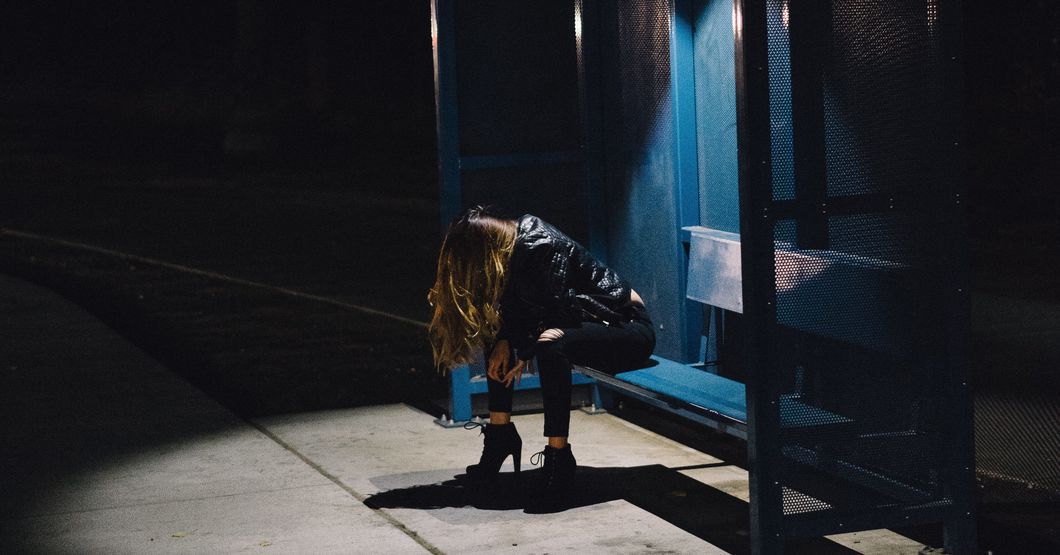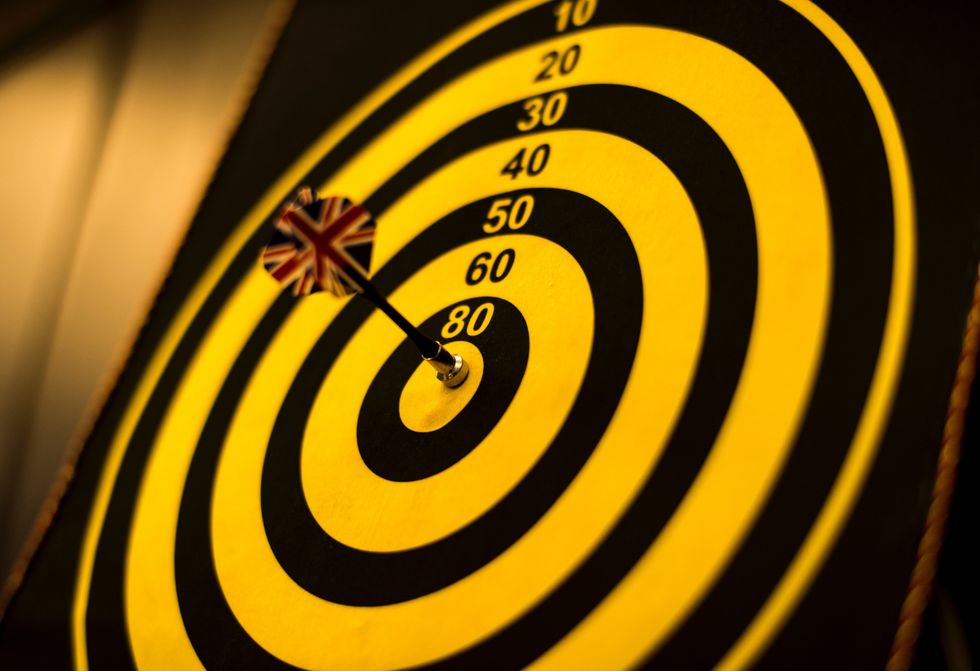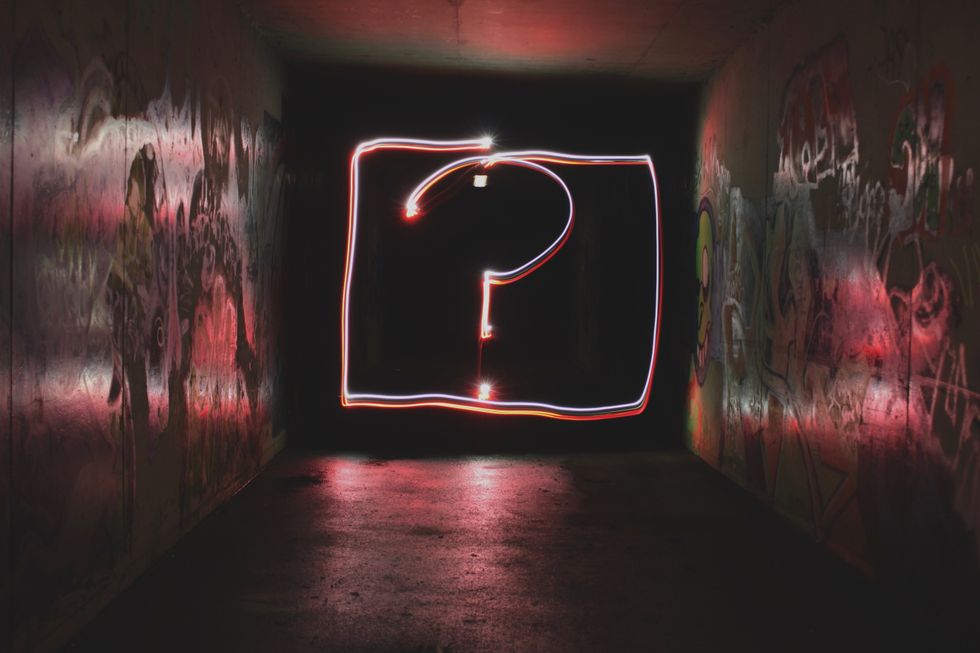8 Subtle Signs Of An Emotionally Abusive Relationship
Disclaimer: This gets really personal, really fast.
People hear the word "abuse" and automatically assume its physical: hitting, kicking, throwing. But abuse has many different faces and when it comes to relationships, possibly one of the lesser-known and often unnoticed is emotional abuse. So what is emotional abuse? It's a difficult question to answer. Emotional abuse, like physical abuse, is an attempt to control another person, but instead of getting physical, an emotional abuser uses emotions as their weapon of choice. It can be anything from being jealous all the time to threatening to kill themselves if you leave them.
So you may be asking yourself, why should I believe anything this 21-year-old college girl tells me? My answer? I've been there. I've been in a relationship that was so toxic, so mentally draining, so emotionally and nearly physically abusive. So, I get it. Looking back, I wish I would have noticed sooner that the relationship was abusive. I thought abuse was only physical. I thought if he didn't physically hurt me it was normal — not abuse. I wish someone would have told me sooner...or at least shown me the signs of a toxic relationship before I got in too deep.
If you're struggling or even if your not, chances are you'll meet someone someday who is. Who needs someone to tell them, "Hey, this is not OK." Or maybe you need someone to tell you that. So this is me, saying to you, to ANYONE struggling with any of these eight signs, "Hey, that's not OK. That's abuse."
Jealousy

Don't be fooled into thinking jealousy is flattery. I've heard so many people who are dating or in relationships say, "Well, I'd be concerned if he/she/they weren't jealous." Jealousy, when it comes to romantic relationships, is defined as "feeling or showing suspicion of someone's unfaithfulness in a relationship." We are taught that a little jealousy is healthy, that it means you truly care about your partner or that your partner truly cares about you. But when jealousy is introduced into a relationship, suddenly people are treated as objects — something to be owned by another person. If a relationship is built on trust, which is crucial to all healthy relationships, jealousy should not be a problem. It's one thing to feel jealous and understand that it is unreasonable. It is another to feel jealous and act on those feelings.
Not Valuing Your Time

No matter how much you like or even love someone, most people have to have time for themselves. Whether it's spent hanging out with friends, going to the gym, or watching Netflix alone, this "alone time" is crucial for a healthy relationship. With that being said, "I just like you so much I want to spend every minute with you" is not a good excuse for your significant other to hold you back from taking this time. While relationships are about building a life together, it is not about two people becoming "one." It is about two people, coming together, bringing their own insights, personalities, and preferences, and forming a team. Relationships require sacrifice, but you shouldn't be sacrificing yourself.
Interrogation v. Interest

There's a difference between being interested in another person's life and trying to "catch" them in a lie. "Where were you?" "How long will you be gone?" "Who else is going?" "How many drinks did you have?" "Did you talk to so-and-so?" Please understand that nowhere does it say that in a relationship you are required to share EVERYTHING. If you are constantly being berated by questions such as these, you should take a step back and reevaluate your relationship. Do you ask these questions of your partner? Or is it only one way? This constant questioning can make you second guess your feelings, memories, and instincts.
Isolation

It happens so slowly that you don't even notice it. First, you can't go to dinner with friends because you and your partner have plans. No big deal. Next time your friends go out, you don't have anything planned, but your partner wants to stay in and watch Netflix. So you stay. And eventually, your friends stop asking. At some point, you feel you have nowhere to go so what do you do? You stay with your partner. Even if you don't want to.
Keeping Score

It is inevitable that at some point in an extended relationship, someone will make a mistake. Whether is be small like forgetting to take out the trash or larger like getting drunk and kissing another person, relationships are about working through these problems. If you can't, which in the case of cheating is the best option, then you need to split up. If you decide to work things out, this issue is in the past.
Once you have both agreed to get past whatever disrupted your relationship, the other person should not use this mistake against you in further arguments. That's why I call this "keeping score." When you're having an issue, it's not about what happened in the past. It is about what is happening right now and how together, you can work through it (or not work through it).
Holding The Relationship Hostage

There should never be a point where you or your partner are saying things like, "I can't date someone who does ___" or "If you can't fix this, we can't be together anymore." Statements like these are using the relationship as an object that is being dangled in front of you, but that you can only have under certain circumstances. While, of course, you should have your standards, they should be set way before you enter into a relationship, and you should NEVER expect someone to change valuable aspects of their personality just to please you.
Asking Permission

Usually, in toxic relationships, one person can do whatever they want while the other is constantly "asking permission" or "checking" with the other to make sure certain actions are OK. In a serious relationship between two adults, there's no need for "permission." Sure, it's OK to check and see if your partner is free that day or maybe if they want to come along, but there's no reason you should treat your significant other like a third parent.
"You Are My Everything"

The phrase might sound flattering and maybe to some, it is. But, in many abusive situations this seemingly "romantic phrase" is often used as a weapon. "You are my everything. If you leave me I'll have nothing." Or, even more extremely, "You are my everything. If you leave me, life isn't worth living anymore." You should NEVER be someone's everything. It's not healthy for you or for them.
Remember, no matter what, there are always people out there who will love and support you. If you, or someone you know, is struggling with an abusive relationship (whether physical or emotional), don't be afraid to look for support.
Relationships are about two people who care deeply about one another. No one who truly "loves" you will abuse you.




 https://www.flickr.com/photos/inthe-arena/23104932075
https://www.flickr.com/photos/inthe-arena/23104932075



















'Exit Through The Gift Shop' Is Banksy's Digital Street Art
The film depicts and comments on the world of street art with the charm of self-awareness.
Remember when that one painting shredded itself after being sold for $1.4 million? That was British street artist Banksy's doing. Despite his rejection of traditional art critics, Banksy's pieces often sell for millions of dollars. There are many who refuse to call his work "real" due to the fact that it is a product of vandalism. His supporters acknowledge that his work is vandalism, which, in tandem with his revolutionary choices in location, style, and subject matter, is precisely what makes it an exemplar of modern art. Regardless of one's opinion of him, Banksy, no doubt holds a position of authority in the modern art world in which everything he creates is a subject of widespread attention, whether it be disparagement or appreciation.
It is perhaps because of this worldwide captivation that "Exit Through the Gift Shop," Banksy's 2010 foray into film-making, comes with considerable accolades. The Academy Award-nominated documentary brings much of the graffiti artist's abrasive commentary to the big screen. With narration from both Banksy and Welsh actor Rhys Ifans, the film acts a self-aware examination of street art, exploring both subtle works like those of British artist Invader to the grand-scale pieces of Banksy himself. This exploration calls into question the public's notions of modern art while also considering what even determines if art is valid.
While Banksy's directs the film, he is neither behind the camera nor the focus of it throughout most of the movie. "Exit" quickly clarifies how that honor goes to Thierry Guetta, a Frenchman from Los Angeles who owned a designer clothing store. What does he have to do with street art or this movie? Everyone involved in the movie asks the same question, but whether he deserves the attention or not, Thierry is stuck with viewers from start to end. Ifans explains how the Frenchman is usually found holding a video camera in front of his eyes, documenting every moment. When Thierry stumbles upon his street artist cousin Invader designing pixel templates for art to be placed on street side walls and rooftops, what follows is his rapid introduction to the world of street art as he films every artist—whether they want him to or not—in the hopes of eventually creating his own documentary about the subject. The journey takes him to the skepticism of Banksy, the interrogation rooms of Disneyworld, and the rooftops of LA, where he even begins to craft his own street art.
It becomes clear why Banksy turned Thierry's cameras around to capture the amateur filmmaker in action. In every scene where he is the subject, Thierry shines with this charismatic joy that borders on annoyance. Other individuals express in their disdain for him, as a supposed imbecile incapable of real artistry, yet he continues to frantically film and create, rarely showing a sign of disillusionment. In one scene he swears in French about how he spilled paint, and seconds later he emphatically tells the camera to get closer to inspect the pink puddle. Some of his interviews are at times nearly incomprehensible, illustrating how he is a perplexing enigma, hypocrisy, an artist who should not be able to attain the success that he does. Thierry, for better or for worse, will make or break a viewer's impression of "Exit Through the Gift Shop."
Banksy pulls together crisp editing and his manic subject to construct a self-aware work that comments on how we perceive art. All of the professional artists believe Thierry's work isn't genuine. Yet the public, finds him a captivating artist, regardless of his frenetic personality. The film, in spite of Banksy's careful direction, is a product and representation of Thierry's haphazard creations and behavior. But just as "Exit" somehow succeeds by using the chaotic source material to find meaning in the madness, so too does Thierry seem to find something magical, practically brainwashing his audience into believing in him and his ingenuity. Whether that means he is a true artist like Banksy is open for debate, but the documentary is a convincing film not afraid to show and criticize the means of its creation.
"Exit Through the Gift Shop" is a film that shouldn't work. And for some, it won't work. The absurdity of a random Frenchman with a camera becoming an artist is likely too much for skeptical viewers. But for those who can digest it, the documentary offers an insightful perspective on modern perceptions of art that is worth watching—even if it feels like an artificial production. In other words, the director has once again gotten away with something that seems delusional, creating a digital Banksy.